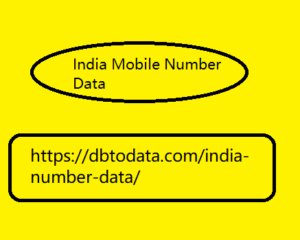Post by account_disabled on Mar 10, 2024 5:48:01 GMT -4
Surviving in the current competitive and dynamic market is no easy task. On the supply side, it is a world in which direct competitors are increasingly fierce and where, out of nowhere, challengers emerge who are more skilled at using technologies to open up new business opportunities. But if we broaden the view, we also notice the influence of the great technological molochs capable of imposing new business models, undermining traditional logics and giving rise to new needs in consumers or pushing their expectations high, increasing service standards.
Demand is instead dominated by what I define as the "augmented consumer", who, thanks India Mobile Number Data to digital and network technologies, is more aware and careful in his purchasing decisions and in choosing which companies to trust. In this complex, and in some respects chaotic, scenario, marketing is asked to play a leading role, an expansion of its traditional tasks and greater business responsibilities. A marketing that is not tactical or that follows the latest fashion, but marketing as a driver of corporate innovation. From this perspective, it would be misleading to talk only about "digital marketing" because there would be a risk of placing emphasis only on digital areas, neglecting the physical ones, which have not lost their importance, or even on a merely logistical conception of digital, as a medium for reach certain audiences.

Similarly, talking about "big data marketing" would risk placing excessive emphasis on data, which are enabling, but not constitutive of the discipline. Thus, even introducing a notion of "AI Marketing" would mean limiting the reasoning to a series of techniques and technologies that would devalue the fundamental role of man, which still remains crucial. The marketing concept that I propose here does not want to become a new empty label, but wants to try to start a discussion on the renewal that is required of this old practice, born in a market context made exclusively by humans.
Demand is instead dominated by what I define as the "augmented consumer", who, thanks India Mobile Number Data to digital and network technologies, is more aware and careful in his purchasing decisions and in choosing which companies to trust. In this complex, and in some respects chaotic, scenario, marketing is asked to play a leading role, an expansion of its traditional tasks and greater business responsibilities. A marketing that is not tactical or that follows the latest fashion, but marketing as a driver of corporate innovation. From this perspective, it would be misleading to talk only about "digital marketing" because there would be a risk of placing emphasis only on digital areas, neglecting the physical ones, which have not lost their importance, or even on a merely logistical conception of digital, as a medium for reach certain audiences.

Similarly, talking about "big data marketing" would risk placing excessive emphasis on data, which are enabling, but not constitutive of the discipline. Thus, even introducing a notion of "AI Marketing" would mean limiting the reasoning to a series of techniques and technologies that would devalue the fundamental role of man, which still remains crucial. The marketing concept that I propose here does not want to become a new empty label, but wants to try to start a discussion on the renewal that is required of this old practice, born in a market context made exclusively by humans.
